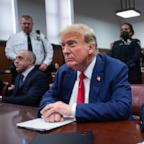Dollar tumbles against euro on unease about inflation
— -- Investors drove the dollar to a four-month low against the euro Thursday, amid concerns that the Federal Reserve's massive crisis-fighting campaign might ignite inflation.
Since April 20, the dollar has fallen more than 7% against the euro to $1.3889. Against a basket of six major currencies, the dollar hit its lowest mark of the year Thursday. "Most people we talk to — mutual fund managers, hedge fund managers, high net-worth individuals — they are concerned about U.S. inflation. … Sentiment is very negative," said Marc Chandler, senior vice president for currency strategy at Brown Bros. Harriman.
By normal measures, the economy seems at little risk of rising prices. Unemployment is high and rising, and factory utilization is at a record low. The Fed expects inflation to remain below 2% through 2011.
But the Fed has pumped out an enormous amount of money to fight the financial crisis. In March, the Fed surprised investors with a plan to buy $1.75 trillion in government and agency debt this year. At its most recent policymaking meeting, the Fed discussed "a further increase in the total amount of purchases" if needed to goose the economy, according to minutes released Wednesday.
Standard & Poor's, meanwhile, lowered its outlook on the United Kingdom to negative Thursday, raising the prospect of the country losing its "AAA" debt rating. Nervous investors have begun worrying about the outlook for the United States. The Obama administration projects a $1.8 trillion budget deficit this year, which will require unprecedented sales of Treasury securities.
"It appears inevitable that the underlying creditworthiness of the U.S. will slip below AAA status in the years ahead," wrote Douglas Porter, deputy chief economist of BMO Capital Markets.
Still, some analysts see the dollar's slide in a more positive light. Brad Setser, a former Treasury Department economist, says U.S. investors are rediscovering their appetite for riskier investments. "Americans are wanting to invest a little more abroad, and that tends to weaken the dollar," says Setser, now at the Council on Foreign Relations.




